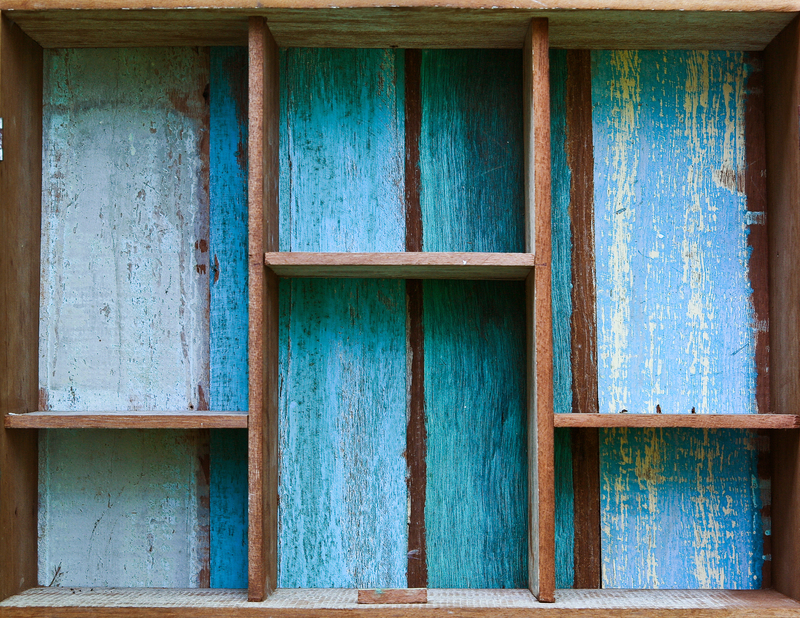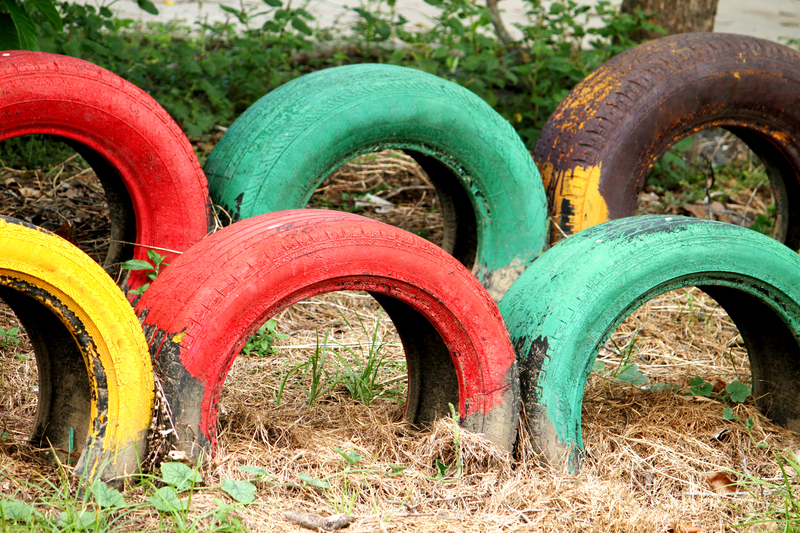Sensitive Clutter and Hoarder Clean Up Solutions for Every Situation
Dealing with sensitive clutter or hoarder clean up presents unique challenges for both individuals and professionals. This delicate undertaking requires empathy, expertise, and effective strategies tailored to every situation. Whether you're assisting a loved one, managing properties, or seeking help for yourself, understanding the nuances of clutter management and hoarding disorders ensures successful, compassionate outcomes. In this comprehensive guide, we'll explore types of sensitive clutter, identify practical hoarder clean up solutions, and provide valuable tips for every scenario.

Understanding Sensitive Clutter and Hoarding
What is Sensitive Clutter?
Sensitive clutter refers to any accumulation of items that may hold emotional value, privacy concerns, or personal significance. This could be:
- Documents containing personal information
- Family memorabilia and photographs
- Medical records
- Heirlooms and keepsakes
- Unopened mail or journals
Understanding Hoarding Disorder
Hoarding disorder is a complex mental health condition characterized by an inability to part with possessions, regardless of their practical value. The clutter can overwhelm living spaces, cause distress, and even result in unsafe conditions.
Common signs of hoarding include:
- Persistent difficulty discarding items
- Accumulation of possessions cluttering living areas
- Distress or anxiety at the thought of discarding items
- Strained relationships or social isolation
The Importance of Sensitive Clutter and Hoarder Clean Up
Ignoring sensitive clutter or hoarding risks much more than just a messy environment. Some of the critical reasons for sensitive clutter and hoarder clean up include:
- Health and Safety: Piles of belongings can harbor pests, mold, allergens, and create tripping hazards.
- Mental Well-being: Excess clutter often leads to stress, embarrassment, and social withdrawal.
- Fire Risk: Accumulated papers and objects can create significant fire hazards.
- Property Value: Unaddressed hoarder situations may result in property damage and diminished value.
By proactively addressing clutter and hoarding, individuals restore safety, dignity, and peace of mind to their lives and living spaces.
Solutions Tailored to Every Situation: A Step-by-Step Approach
1. Assessment and Planning
Every sensitive clutter or hoarder clean up process should begin with a comprehensive assessment. Evaluate:
- The type and amount of clutter
- Emotional attachments to belongings
- Health and safety concerns (mold, pests, biohazards)
2. Compassionate Communication
Sensitive discussions are vital, especially for hoarding situations. When helping someone:
- Use non-judgmental language
- Listen actively to their concerns
- Respect privacy and sentimental attachments
- Encourage, but never force, decision-making
3. Safety First: Protective Gear and Precautions
For significant clutter or hoarding clean up projects, ensure everyone's safety by:
- Wearing gloves, masks, and protective clothing
- Ventilating the area to avoid fumes and dust
- Checking for hazards (mold, syringes, animal droppings)
- Securing exits and pathways
4. Decluttering Process: Sort, Decide, Remove
Implement the proven Sort, Decide, Remove strategy:
- Sort: Categorize items into "Keep," "Donate," "Discard," and "Shred" piles.
- Decide: Allow the owner to make choices at their pace, recognizing emotional triggers.
- Remove: Dispose of unwanted items with sensitivity, using proper disposal or donation methods.
5. Specialized Cleaning Methods for Sensitive Environments
Some hoarding and sensitive clutter clean ups require extra care:
- Document Destruction: Use cross-cut shredders for confidential paperwork.
- Heirloom Preservation: Archive family artifacts or digitize photographs before removal.
- Sanitization: Disinfect and deodorize areas exposed to waste or infestations.
- Restoration: Repair or replace damaged flooring or walls as needed.
6. Emotional Support and Aftercare
It's crucial to address the emotional aftermath of sensitive clutter or hoarder clean up. Offer ongoing support by:
- Encouraging therapy or counseling
- Providing organizational coaching
- Following up to maintain a clutter-free environment
- Connecting with hoarding support groups
Professional Hoarder Clean Up Services: When to Seek Help
Benefits of Hiring Hoarder Clean Up Professionals
Some situations are too complex or hazardous to tackle alone. Professional hoarder clean up services offer:
- Specialized equipment and cleaning agents
- Experienced, compassionate staff
- Discretion and confidentiality
- Biohazard and odor remediation
- Property restoration
What to Look for in a Professional Clean Up Company
When choosing a service for sensitive clutter or hoarder clean up, consider:
- Reputation and client reviews
- Certification and insurance
- Availability of emergency clean up and after-hours services
- Sensitivity to emotional challenges and privacy
- Clear, transparent pricing
Do-It-Yourself Sensitive Clutter and Hoarder Clean Up Tips
Preparing for the Task
If you're taking the DIY approach, plan ahead:
- Set specific, manageable goals for each session
- Recruit supportive friends or family members
- Gather supplies--boxes, trash bags, cleaning products, gloves
- Prepare a reward or relaxation routine for after the work
Organizational Techniques
Maintaining a clutter-free home after a clean up is achievable with these practices:
- Designate storage spaces for frequently used items
- Label boxes or bins for easy identification
- Schedule regular decluttering sessions
- Limit new acquisitions unless needed
Privacy and Confidentiality in Sensitive Clutter Removal
Privacy is paramount in sensitive and hoarder clean up. Safeguard confidentiality by:
- Working with trustworthy individuals or professionals
- Shredding personal documents rather than disposing of them intact
- Ensuring photographs or memorabilia are not shared without consent
- Following legal and ethical guidelines for handling medical or financial records
Success Stories: Real-Life Hoarder Clean Up Transformations
Case Study One: Senior Living Clutter Clean Up
A family sought help for an elderly parent struggling with chronic clutter. With professional guidance, the team:
- Identified cherished items for safekeeping
- Disposed of expired prescriptions and sensitive documents securely
- Sanitized the home for safety and hygiene
- Restored the living space to a safe, comfortable environment
Case Study Two: Extreme Hoarding Clean Up
A property manager faced an abandoned unit stacked with debris and hazardous materials. By engaging a specialized hoarder clean up company, the process included:
- Biohazard containment and removal
- Deep cleaning and odor mitigation
- Restoration of damaged walls and flooring
- Documentation and reports for insurance compliance
Prevention: Maintaining a Clutter-Free, Healthy Home
Preventing recurrence is crucial after a successful clean up. Strategies for ongoing clutter management include:
- Regular decluttering days scheduled throughout the year
- Embracing a minimalist or "one in, one out" policy
- Seeking organizational support or coaching
- Early intervention if signs of hoarding return

Frequently Asked Questions About Sensitive Clutter and Hoarder Clean Up
How do I talk to a loved one about their hoarding?
Approach the conversation gently and privately. Use non-judgmental language, express concern for their safety, and offer support rather than ultimatums.
Are there legal implications in hoarder clean up?
Yes. Certain items (medications, firearms, hazardous waste) require proper disposal according to local laws. Consult professionals if you're unsure.
What are signs it's time for professional intervention?
Consider hiring experts if:
- The environment is unsafe or biohazardous
- You encounter overwhelming amounts of sensitive clutter
- There's resistance, anxiety, or distress during clean up
- You need documentation for property management or legal reasons
Conclusion: Sensitive Clutter and Hoarder Clean Up for a Healthier Future
Addressing sensitive clutter and managing hoarder clean up is a challenging but transformative journey. Whether you're working on a small personal project or facing an extreme hoarding crisis, the right resources, support, and knowledge ensure a respectful and thorough process. Always prioritize safety, empathy, and privacy--and don't hesitate to seek professional help when needed. With careful planning and ongoing management, anyone can achieve and maintain a cleaner, healthier living space.
For those struggling, remember: help is available and change is possible. Start your clutter-free journey today, and restore peace to your home and mind.
